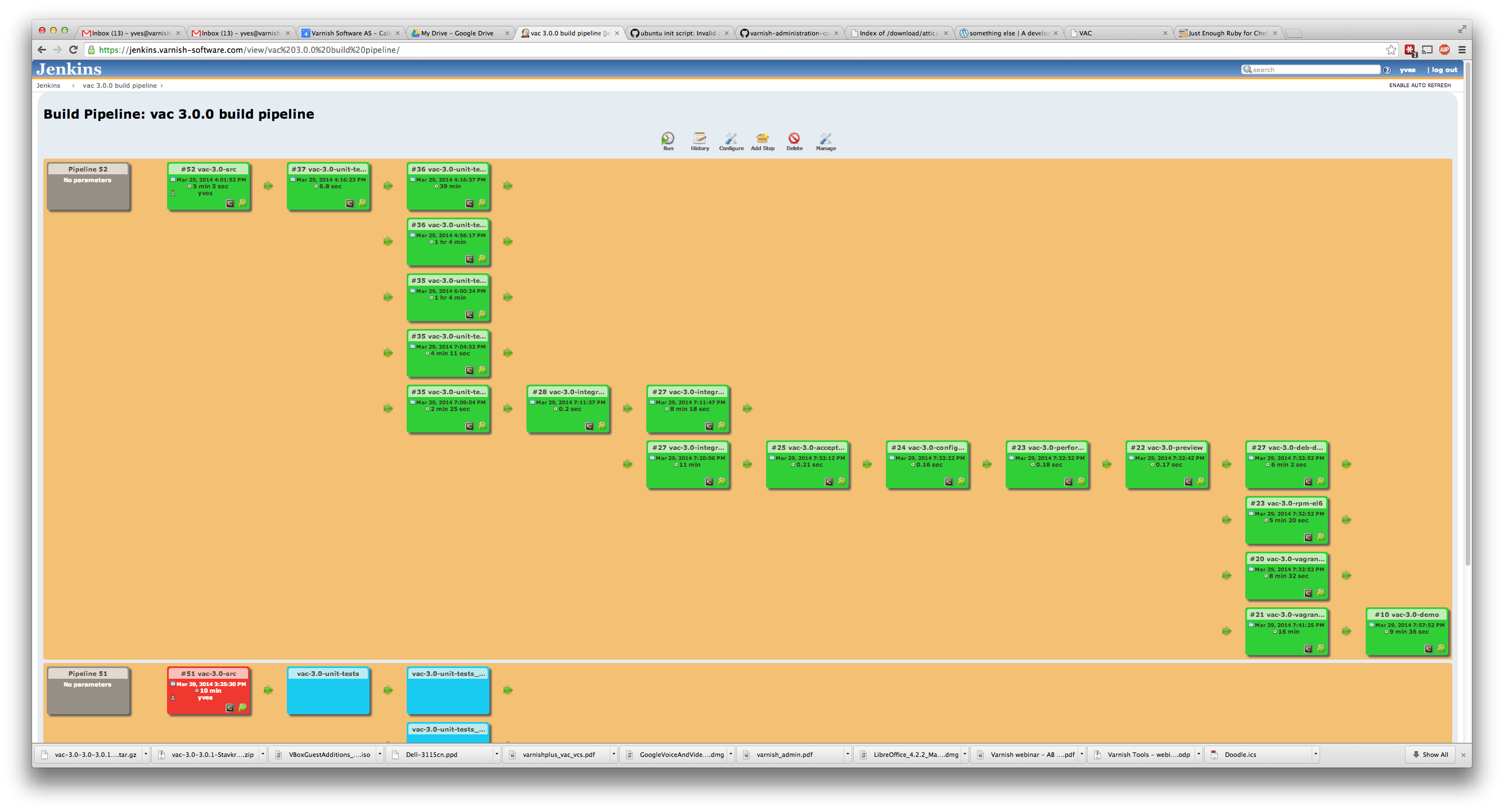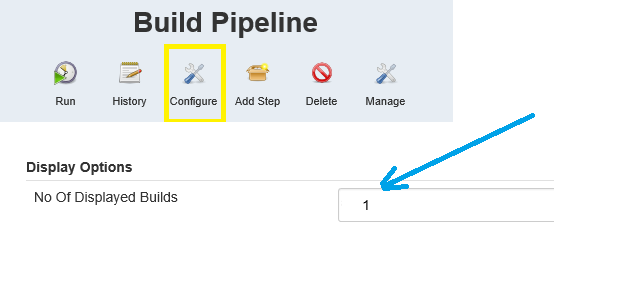Is it possible that for a given Build Pipeline job (which has downstream jobs either in the build or post build action as "Trigger build on other projects"), I can get a Tree listing view showing which Pipeline job# N called, what child jobs in the calling order (sequential or parallel) with child build# for that pipeline run build#.
For ex: If my pipeline job has this view:
 then,
then,
I'm expecting to get a listing of the top run similar to (in case I just put in simple text format):
vac-3.0-src:52 called: vac-3.0-unit-test-main:37
vac-3.0-unit-test-main:37 called: vac-3.0-unit-testA:36
vac-3.0-unit-test-main:37 called: vac-3.0-unit-testB:36
vac-3.0-unit-test-main:37 called: vac-3.0-unit-testC:35
vac-3.0-unit-test-main:37 called: vac-3.0-unit-testD:35
vac-3.0-unit-test-main:37 called: vac-3.0-unit-testReporting:35
vac-3.0-unit-testReporting:35 called: vac-3.0-integration-test-main:28
vac-3.0-integration-test-main:28 called: vac-3.0-integration-testA:27
vac-3.0-integration-test-main:28 called: vac-3.0-integration-testB:27
vac-3.0-integration-testB:27 called: vac-3.0-acceptance-test:25
vac-3.0-acceptance-test:25 called: vac-3.0-configure-something:24
vac-3.0-configure-something:24 called: vac-3.0-perform-someaction:23
vac-3.0-perform-someaction:23 called: vac-3.0-preview-step:22
vac-3.0-preview-step:22 called: vac-3.0-deb-delivery-job:27
vac-3.0-preview-step:22 called: vac-3.0-rpm-el6:23
vac-3.0-preview-step:22 called: vac-3.0-vagrant-provision:20
vac-3.0-preview-step:22 called: vac-3.0-vagrant-run:21
vac-3.0-vagrant-run:21 called: vac-3.0-demo:10
OR this information can be presented in a more robust structural manner i.e. it can be JSON blob where a parent job has structure which will have all jobs that it called (parallel/sequence) in the pipeline run / given order.
I tried the main job's URL (via curl) with Jenkins API i.e. /api/xml or /api/json?pretty=true&depth=10 or more but it doesn't give me the information that I'm looking for (related to a given pipeline run).
This information is visually available on the pipeline view (as per the image) and some information about subprojects is available on a given Jenkins job's dashboard (which was part of the pipeline) but the order is not there.
I'll appreciate if you have tried to solve this and have any solution to get this data. The reason for this effort is to find metrics horizontally for a given pipeline run (Rather than vertically for each individual job which are part of pipeline as I already have the vertical / individual job metrics for Total time, build#, result etc) but how I can relate each individual job's metrics for a given pipeline run, is what I'm trying to get.
If the above image example is big enough, we can refer a smaller run image snapshot here:


